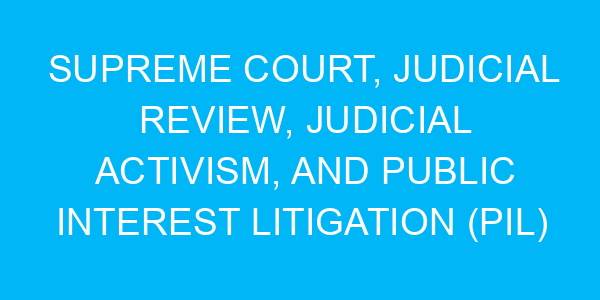126. Which case established the principle of “epistolary jurisdiction” in India?
a) People’s Union for Civil Liberties v. Union of India
b) S. P. Gupta v. Union of India
c) Sheela Barse v. Union of India
d) State of Uttar Pradesh v. Raj Narain
127. The principle of “res judicata” means:
a) The principle of judicial activism
b) The principle of judicial review
c) The principle of finality of judgments
d) The principle of judicial independence
128. The Supreme Court of India has the power to punish for its contempt under which provision of the Indian Constitution?
a) Article 129
b) Article 131
c) Article 132
d) Article 356
129. The power of “judicial activism” is aimed at:
a) Addressing social issues and protecting fundamental rights
b) Restraining the judiciary from interfering in policy matters
c) Granting more power to the executive branch
d) Delegating judicial powers to the legislative branch
130. Who can initiate a PIL in the Supreme Court of India?
a) Any citizen of India
b) Only registered NGOs
c) Only the government
d) Only the Chief Justice of India



